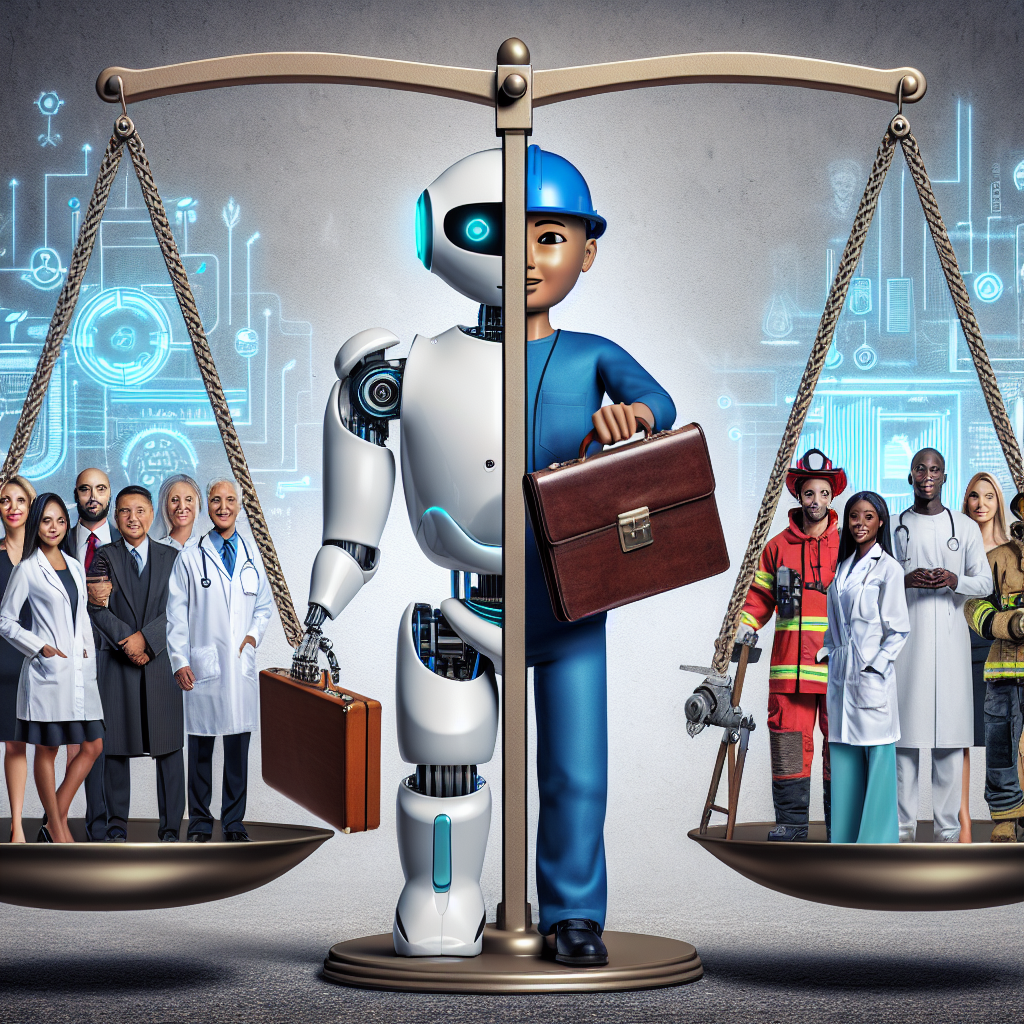Artificial General Intelligence (AGI) is a term used to describe the hypothetical intelligence of a machine that has the capacity to understand and learn any intellectual task that a human being can. While AGI is still a concept that exists largely in the realm of science fiction, advancements in artificial intelligence (AI) technology have raised concerns about its potential impact on the job market. Many experts believe that as AI technology continues to advance, robots and other forms of automation could replace human workers in a wide range of industries. This article will explore the potential impact of AGI on the job market and address the question: Will robots replace human workers?
The Rise of Automation
Automation has been a part of the industrial landscape for decades, with machines taking over many routine and repetitive tasks that were once performed by human workers. However, recent advancements in AI technology have enabled machines to perform more complex tasks that were previously thought to be the exclusive domain of human intelligence. From self-driving cars to automated customer service representatives, AI is already beginning to have a significant impact on the job market.
One of the key concerns about the rise of automation is the potential for widespread job displacement. As machines become increasingly capable of performing a wide range of tasks, many jobs that are currently held by humans could be at risk of being automated. According to a report by the McKinsey Global Institute, up to 800 million jobs worldwide could be automated by 2030, with the greatest impact expected to be felt in industries such as manufacturing, transportation, and retail.
The Impact of AGI
While the concept of AGI is still largely theoretical, many experts believe that the development of truly intelligent machines could have a profound impact on the job market. A machine that is capable of understanding and learning any intellectual task that a human can could potentially automate a wide range of jobs across a variety of industries. For example, AGI could be used to automate tasks such as data analysis, customer service, and even creative work such as writing and design.
Some experts believe that the rise of AGI could lead to widespread job displacement, with machines taking over many of the tasks that are currently performed by human workers. This could lead to a significant shift in the job market, with many workers being displaced by machines and forced to find new ways to make a living. However, other experts argue that the rise of AGI could also create new job opportunities, as humans are freed up to focus on more creative and strategic tasks that require human intelligence.
The Future of Work
As AI technology continues to advance, it is clear that the job market is likely to undergo significant changes in the coming years. While the impact of AGI on the job market remains uncertain, it is clear that automation will continue to play a key role in shaping the future of work. In order to navigate this changing landscape, workers will need to adapt to new technologies and develop skills that are less easily automated.
One potential solution to the rise of automation is the concept of universal basic income (UBI), which would provide all citizens with a guaranteed income regardless of whether they are employed. Proponents of UBI argue that this could help to mitigate the impact of job displacement caused by automation and provide workers with the financial security they need to adapt to a changing job market. However, critics argue that UBI could disincentivize work and lead to economic inefficiency.
FAQs
Q: Will robots completely replace human workers in the future?
A: While it is difficult to predict the exact impact of automation on the job market, it is unlikely that robots will completely replace human workers. Many tasks require human intelligence, creativity, and emotional intelligence that are difficult for machines to replicate.
Q: What can workers do to prepare for the rise of automation?
A: Workers can prepare for the rise of automation by developing skills that are less easily automated, such as critical thinking, creativity, and emotional intelligence. Additionally, workers can stay up-to-date on the latest technologies and trends in their industry to ensure they remain competitive in the job market.
Q: How can policymakers address the impact of automation on the job market?
A: Policymakers can address the impact of automation on the job market by investing in education and training programs that help workers develop the skills they need to succeed in a changing job market. Additionally, policymakers can explore solutions such as universal basic income to provide workers with financial security in the face of job displacement.
In conclusion, the rise of AGI and automation is likely to have a significant impact on the job market in the coming years. While the exact implications of this technology remain uncertain, it is clear that workers will need to adapt to new technologies and develop skills that are less easily automated in order to thrive in a changing job market. By preparing for the rise of automation and staying informed about the latest trends in their industry, workers can position themselves for success in the age of AI.

